Mitou Nguyen understands the power local businesses can have. Growing up in San Francisco, he saw first-hand how companies could serve as an entry point into the various communities and cultures in the area.
These personal experiences inspired him to join Groupon as a product manager, working to help other people build the same relationships with local businesses in their community. We spoke with Mitou and three members of his team to learn more about how they drive product development and make those visions a reality.
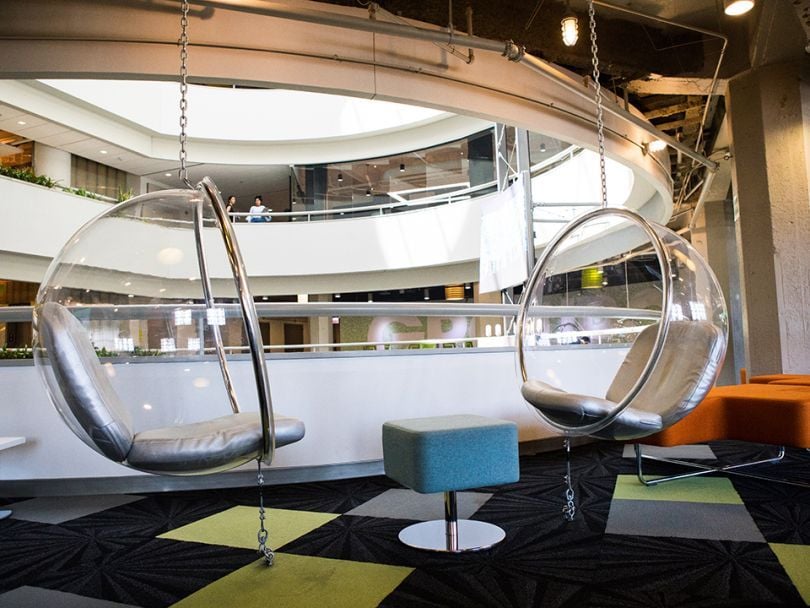
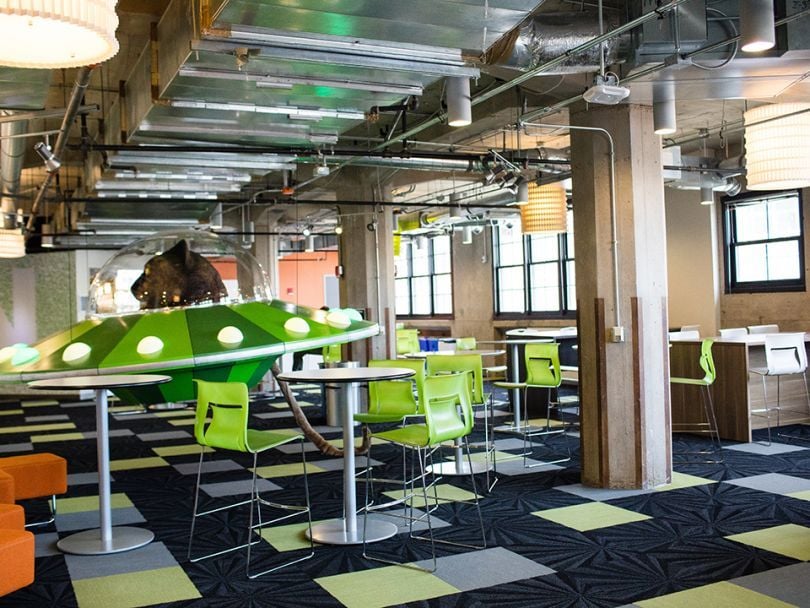
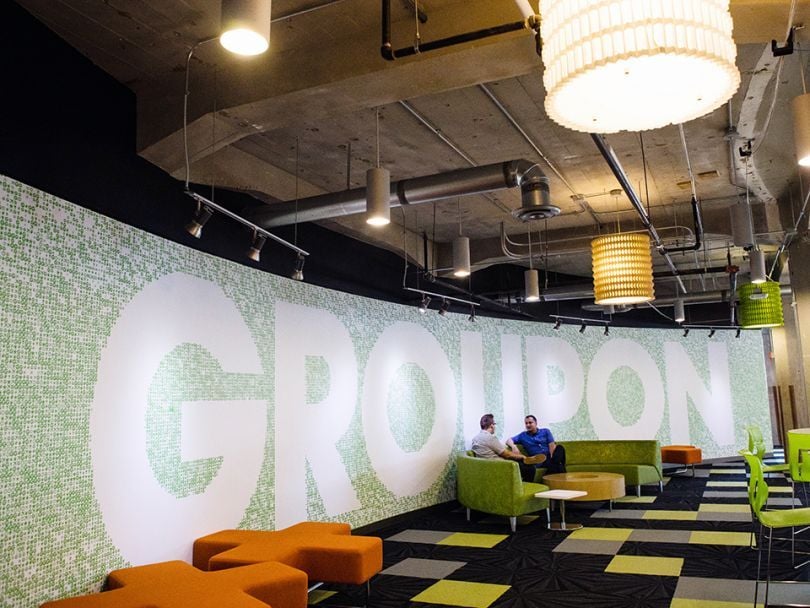
Groupon
FOUNDED: 2008
EMPLOYEES: 6,000 global (more than 1,500 local)
WHAT THEY DO: Groupon is a marketplace for local services, experiences and goods that aims to build stronger communities by connecting consumers with local businesses in their neighborhood.
WHERE THEY DO IT: Chicago
GROUPON VIKINGS: Groupon employees get a special discount on Groupons, which leads to exciting team events. For the product team’s latest outing, they donned Viking gear and went ax throwing.
CLASS IS IN SESSION: Every new sales member is enrolled in Groupon’s sales university, where they receive a masterclass in sales and onboarding that sets them up for success. Learn more.
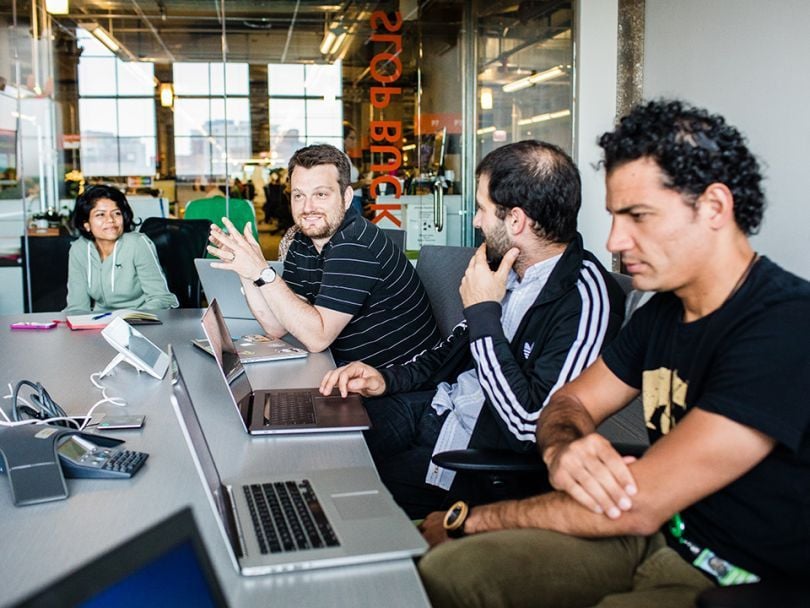
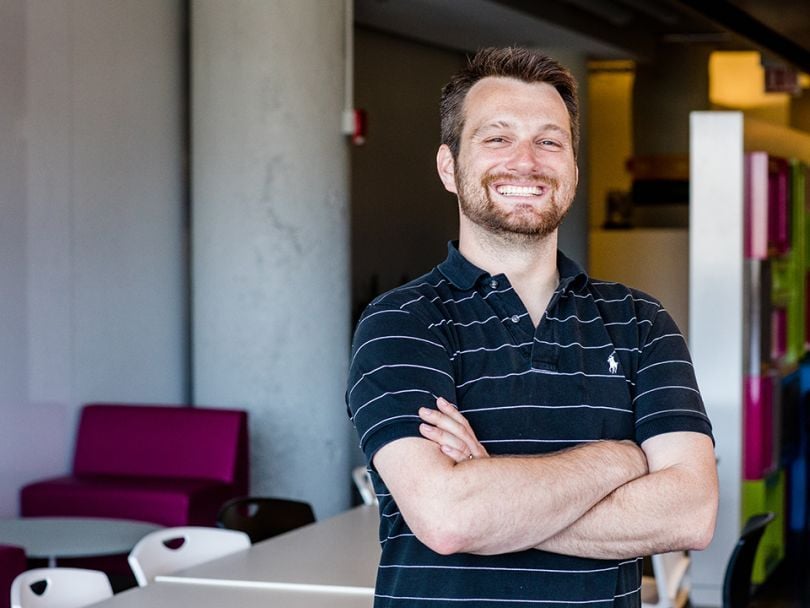
Andrew Lisy, Director, Technical Product Management
Andrew leads the supply and merchant efforts at Groupon. His teams use machine learning to find the best merchant fits, allowing third parties to list on the website and creating new value propositions for businesses to promote their products and services in the Groupon marketplace.
BEYOND WORK: Andrew enjoys woodworking, which allows him to step away from his computer and plug into his craft.
How do you communicate vision to software developers and the business team?
Software engineers want to know how the work they’re doing contributes to the mission and goals of the company. Communicating that vision can’t be a one-time thing. It’s important to constantly bring everyone along with why the day-to-day work is important in hitting the company’s higher-level, more abstract goals.
For business teams, once you’re aligned on the end state, the most important interactions are around communicating the roadmap, hitting milestones and discussing design decisions that support the path you’ve chosen.
Software engineers want to know how the work they’re doing contributes to the mission and goals of the company.”
How do you navigate disagreements about vision among teams?
The first thing is to zoom out on the disagreement to find the point where you agree. Maybe you don’t agree that the next step is to sell ice cream through Groupon, but you probably do agree that Groupon should broaden its offerings.
Once you find the point where you agree, you can dive back into why each person feels the way they feel. If you’re going after the same goal and you have different opinions on how to get there, then it becomes much easier to discuss your opinions. Eventually, you’ll reach a solution that will hit the goal you both agreed on in a way that’s acceptable to everyone.
How do you find out what your customers want from your products?
We do a lot of customer research and interviews. We talk with our users to see what they love about Groupon, what they don’t like and where they get confused. Using this as a baseline, we build features intended to lean into the areas they love, solve the pain points they don’t like and clarify what confuses them. After we launch a feature, we use industrial-grade A/B testing to grade ourselves and determine if we’ve succeeded.
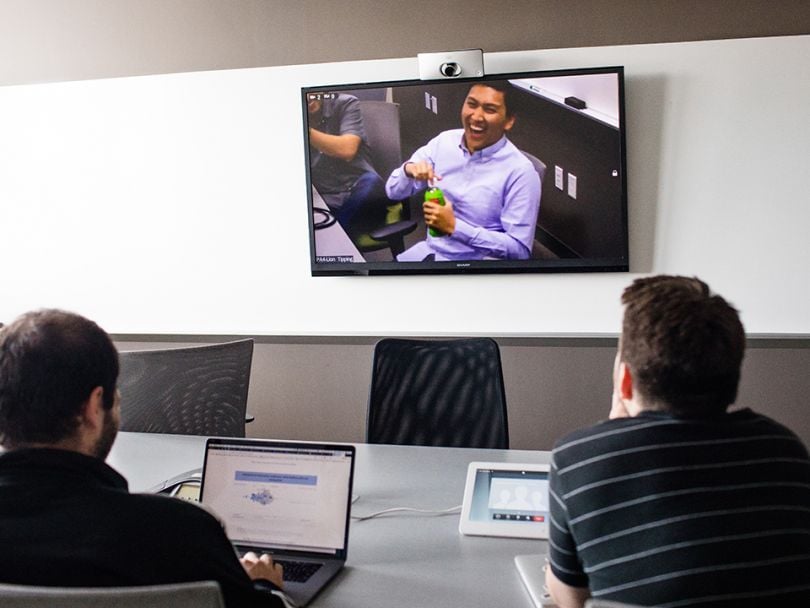
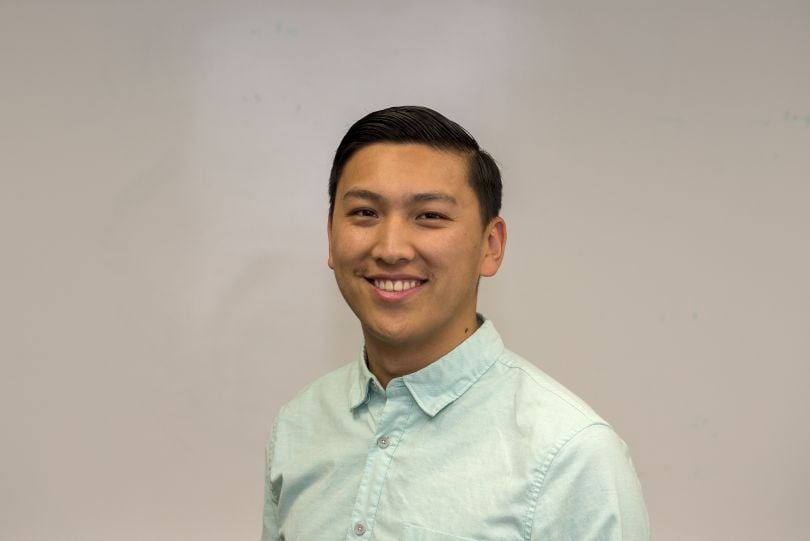
Mitou Nguyen, Product Manager
Mitou Nguyen works on the third-party integrations platform team. His team’s goal is to build Groupon’s platform into a comprehensive marketplace, where customers can find everything they love to do and buy in one place.
BEYOND WORK: Mitou enjoys urban dancing and choreography.
What attracted you to Groupon?
Growing up in San Francisco, I experienced so many different cultures through local shops across the city’s diverse neighborhoods. These experiences are crucial in broadening our understanding of different people and their backgrounds, and in establishing global communities.
Groupon connects people to local businesses like the ones I grew up visiting. I was excited — and a little nervous — when I had the opportunity to drive strategic initiatives that could impact millions of customers and help determine how they discover and interact with local businesses.
Groupon connects people to local businesses like the ones I grew up visiting.”
What challenge is your team is trying to solve?
While Groupon has extensive relationships with many local businesses across the world, there are still many businesses that aren’t on Groupon yet. This means that customers could be missing out on some amazing experiences. Our team is focused on building a robust platform that brings on businesses to Groupon at scale and delights customers through comprehensive offerings.
Is this job what you expected?
I have the opportunity to have a large and measurable impact on Groupon’s success, which motivated me to join the team. I didn’t expect our platform to be interwoven with almost every other team at Groupon.
This can be a challenge, due to the increased complexity that comes with more dependencies and downstream impacts. However, it’s helped me develop a comprehensive understanding of how Groupon operates from both a technology and a business process perspective.
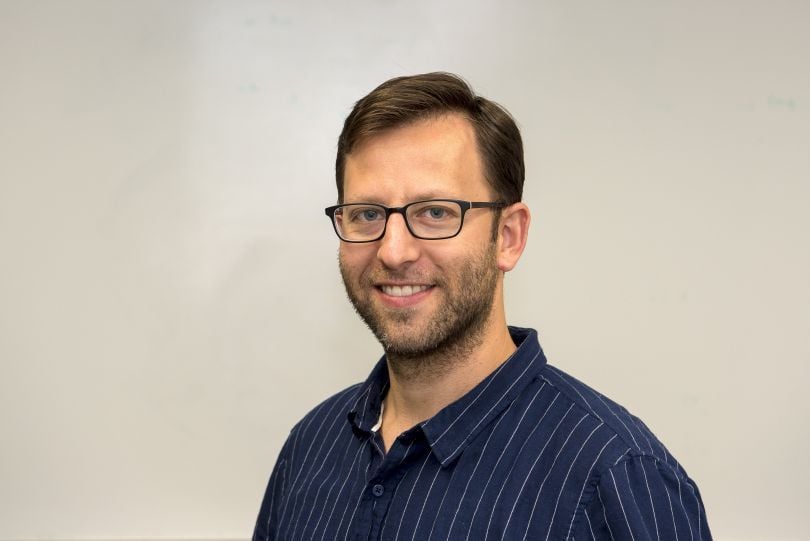
Assaf Eisenberg, Group Product Manager
Assaf Eisenberg leads the alignment and prioritization initiatives that drive Groupon’s central supply strategy. He helps execute external partnerships, define work processes and oversee roadmaps for Groupon’s third-party platform and supply intelligence tools.
BEYOND WORK: When Assaf isn’t spending time with his children, he loves scuba diving. He once dove professionally at a dive center in Thailand.
What attracted you to Groupon?
I grew up in Israel and spent several years in the military. I then studied engineering and held positions in IT, B2B systems and process improvement, which got me interested in the interactions between business and technology.
I received my MBA at the University of Chicago's Booth School of Business and went into product management because it combines business, technology and people — everything I was looking for. I saw Groupon as a sweet spot between a large international company where I could make an impact and a business with an upbeat, small-company tempo that would allow me to move fast and affect decisions.
I saw Groupon as a sweet spot between a large international company where I could make an impact, and a business with an upbeat, small-company tempo that would allow me to move fast and affect decisions.”
What do you love about your job?
The first thing I love about my job is problem solving. If I’m able to solve a difficult problem, especially with a simple and elegant solution, then my entire day (and sometimes week) becomes much brighter.
I also enjoy driving consensus. It’s always a challenge to get into a room with a group of people who have different priorities and opinions and try to find common ground. So it fills me with a sense of accomplishment to know that we always manage to bridge our differences and continue forward as a united team.
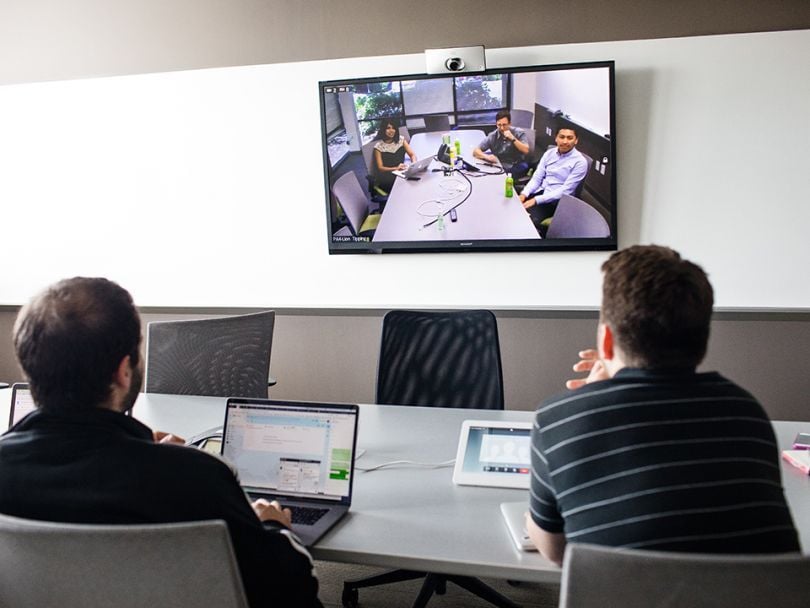
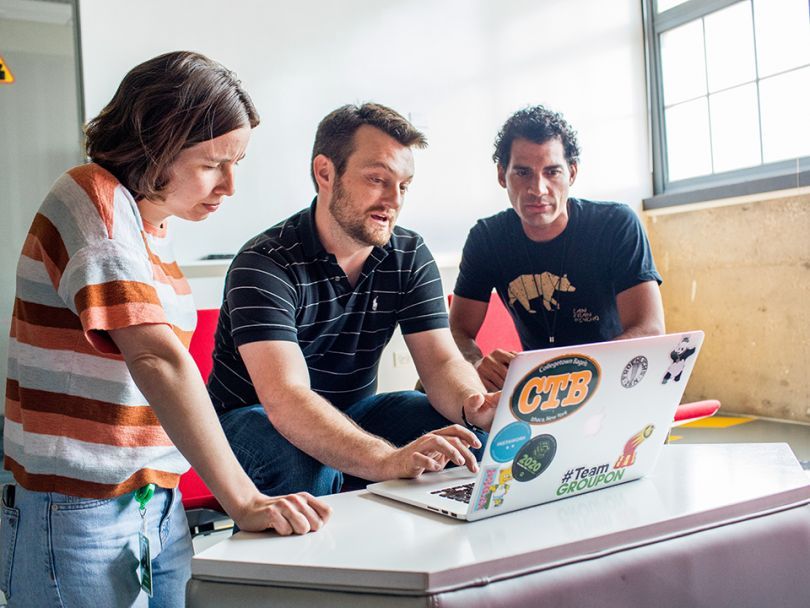
How does your team prioritize the ideas you should build?
Our prioritization process can be complex because we have multiple work streams that need to be balanced. This includes new initiatives and partnerships, improvements to existing ones, internal tools and platform enhancements. New ideas can come from anywhere: customer feedback, user research, insights we identify when analyzing data, or just creative thought by our team or colleagues.
When an idea is raised, we formulate hypotheses and turn to our data to find indications of the benefit and opportunity size. We might run a lightweight test or a user study if there are additional questions to answer. Once we have an estimate of the benefit and cost, we can weigh it against all the other items in our queue and make an informed decision.
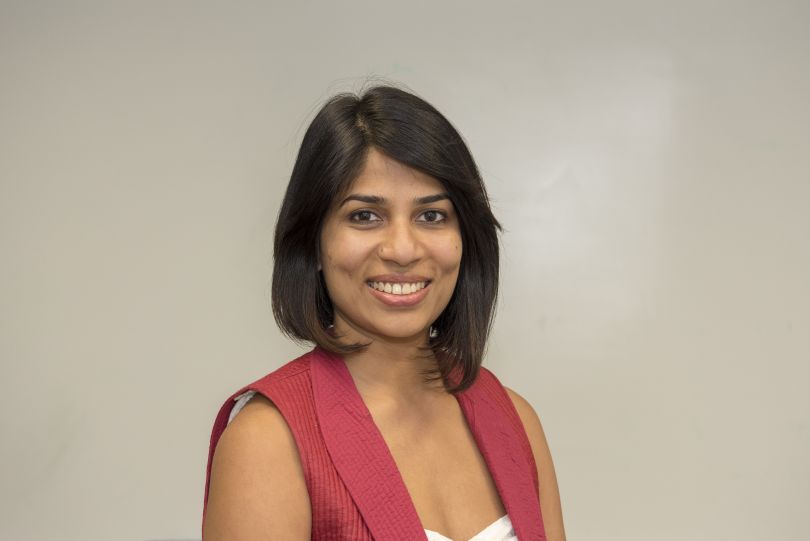
Navya Reddy Dyavadi, Product Manager
Navya Reddy Dyavadi works on the scalable supply team. Her team helps business partners list their offerings on the Groupon website and mobile app.
BEYOND WORK: Navya enjoys cooking and experimenting with ingredients in the kitchen.
How does your day break down?
I joined Groupon after earning my masters of business administration at Wharton School of the University of Pennsylvania. Before Wharton, I worked in investment banking for five years as a risk analyst, trader and as a member of a financing team that works with hedge fund partners on long-term investments.
I enjoyed thinking about creative financial structures and products that can help address a partner’s needs. I wanted to do something similar in a different context with a larger impact. Product management in consumer tech seemed like best fit. Groupon, with its scale and agility, represented the perfect opportunity.
Data is the biggest and most effective tool in identifying problems, gaps and what the customer wants.”
How do you find out what your customers want from your products?
Data is the biggest and most effective tool in identifying problems, gaps and what the customer wants. We gather data from user study, customer interviews and their interactions with our app and website. We then use these data points to determine our product and feature development. We also rely on experimentation data to test our understanding after feature development.
What’s the biggest challenge your team is solving?
Customer frequency is a key to Groupon’s strategy. Our team is focusing on building a deep supply that can be personal and inspiring for customers. By adding quality inventory at scale, we are looking to address most of each customer’s local needs in one destination to make Groupon an integral part of their daily routine.



